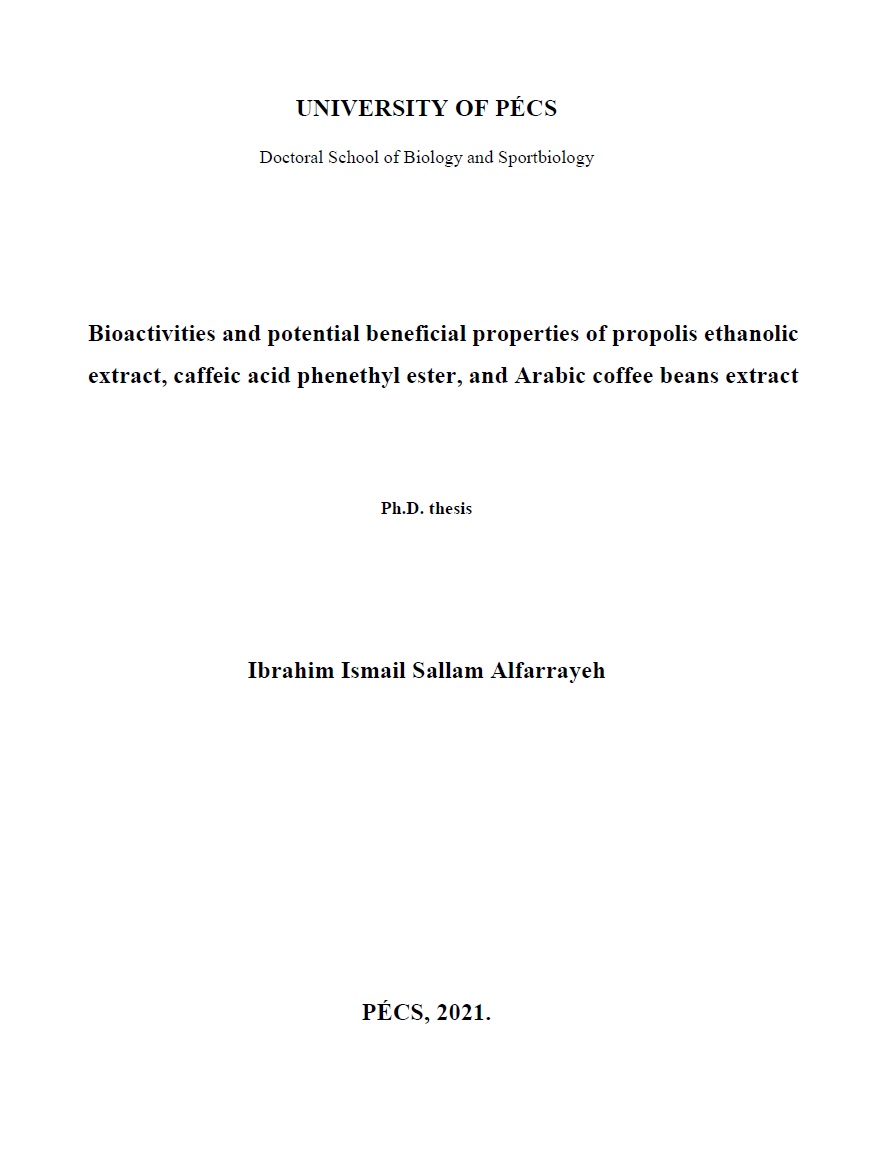Bioactivities and potential beneficial properties of propolis ethanolic extract, caffeic acid phenethyl ester, and Arabic coffee beans extract
Abstract
In recent years, the biological activities of natural products have received much attention
because of the increasing interest in human health (Bernardini et al., 2018; Er, 2021; Gyawali
and Ibrahim, 2014; Kokoska et al., 2019; Okińczyc et al., 2020). One of the most important
natural products that are commonly used for their antimicrobial properties is propolis. It is
produced by honeybees from resins and plant exudates. Plants protect themselves from
pathogenic microbes primarily by producing secondary metabolites termed phytochemicals,
many of which have been isolated and used in medicine for their antioxidant and
antimicrobial properties (Berretta et al., 2020). Phytochemical compounds that are promising
as antimicrobial agents in humans include all components of propolis (Tiku, 2018). These
antimicrobial properties can be recognized by honeybees, which selectively collect these
plant products and process them to make propolis (Berretta et al., 2020).

